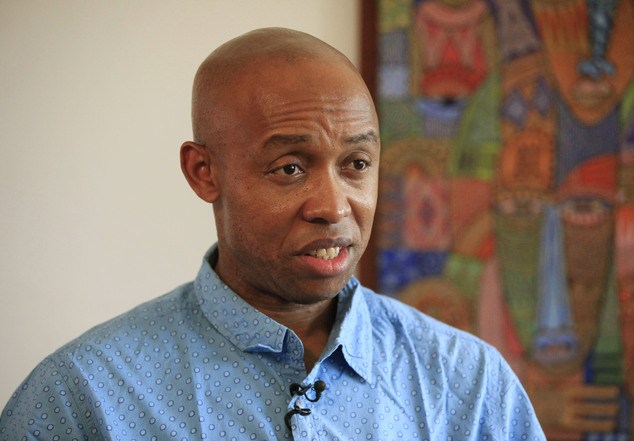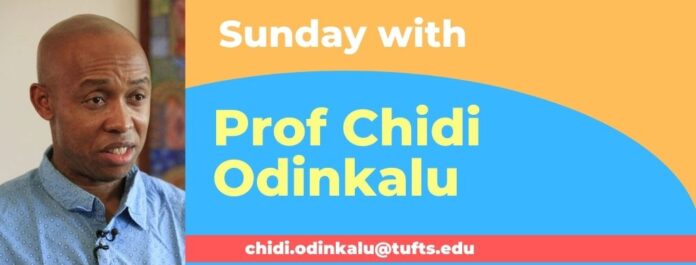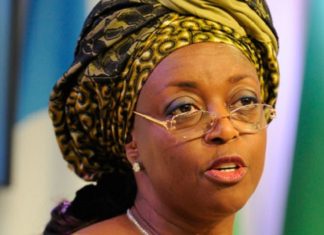The only hopeful thing in this sorry story is that it has taken this judicial mano-o-mano in Kano to rouse a set of actors who have for long chosen to be part of the problem in offices that require them to be part of the solution.
By Chidi Anselm Odinkalu
Muhammad Ali, the American boxing phenomenon whom the British Broadcasting Corporation (BBC) voted the Sports Personality of the 20th Century in 1999, often promoted pugilistic enterprise in verse. When then ruler of the country formerly known as Zaire (now the Democratic Republic of the Congo), Mobutu Sese Seko Kuku Ngbendu wa za Banga, invited him to a contest against then reigning champion, George Foreman, for the undisputed heavyweight boxing championship of the world in October 1974, Ali christened the contest as “Rumble in the Jungle”.
One year later, in October 1975, Filipino dictator, Ferdinand Marcos, thought to imitate his friend in Zaire by inviting Ali to fight his long-time rival, Joe Frazier, for a third time for bragging rights to the title of greatest of all time (GOAT). Never short of a keen lip for every occasion, Ali promised that it was going to be “a killa and a thrilla and a chilla, when I get that gorilla in Manila.” The fight went into the history books as “Thrilla in Manila.”
Over a five-day period in the last week, three different judges in two court systems in Nigeria – one state and one federal – have gone mano-o-mano in Kano in judicial pugilism deploying a fusillade of mutually contradictory ex-parte and interim orders, all and each purporting to comfort one side or the other in the contest over the destination and future of the Kano Emirate.
Like the legendary manager of Arsenal FC, Arsene Wenger, who always seemed not to see awful things that he was reluctant to pronounce upon, Yakubu Maikyau, the physically imposing but somnolent president of the Nigerian Bar Association (NBA), on this occasion got unusually exercised by the judicial blood-sport in Kano. In an uncharacteristically forthright statement, Mr. Maikyau, a Senior Advocate of Nigeria (SAN), denounced “the conducts (sic) of counsel and the courts in handling the proceedings, which culminated in the orders issued by the Federal High Court, the Kano State High Court, and again the Federal High Court”, describing them as “a circus”, which “have brought utter disgrace and shame to the profession.”
A statement from this president of the NBA on this kind of affair is so unusual that it is a spectacle on its own, there to be admired for the fact of its existence and not to be made the subject of any quibble. There are several things that this president of the NBA was reluctant to utter but whose acknowledgement is essential if the affliction that he has chosen on this occasion to recognize is to be lanced for good.
First, it must count as one of those judicial miracles that have become the staple of the Nigerian judiciary that two different judges of the Federal High Court managed to both defy the Constitution and overrule the Supreme Court over a local chieftaincy question. Section 251 of Nigeria’s 1999 Constitution makes it clear that the Federal High Court is a court of limited jurisdiction confined to issues over which the Federal Government has competence to make laws or to necessarily ancillary matters. A chieftaincy dispute, which is what the tussle over the Emirship of Kano is, is palpably beyond the scope of the Federal High Court under the constitution and under well-established jurisprudence of the Supreme Court.
READ ALSO:
36 years ago, following his 1986 deposition as the Emir of Muri by then Governor of Gongola State, Yohanna Madaki, a soldier, Alhaji Umar Abba Tukur sued to enforce his fundamental rights before the Federal High Court in Kano. The Supreme Court made clear that the Federal High Court is a court of limited jurisdiction and warned: “Courts in this country, without exception, have no power to prescribe jurisdiction for themselves. Neither do they have power to expand or reduce their area of jurisdiction.” Even more telling was this line from the judgment of Otutu Obaseki speaking in that case for a unanimous Supreme Court: “all the breaches of the fundamental rights alleged flow from the deposition of the appellant from the office of Emir of Muri by the Military Governor of the State. The office of Emir of Muri is a chieftaincy office and the deposition of the Emir a chieftaincy question which only a State High Court has jurisdiction to determine.”

Second, Abdullahi Liman, the judge of the Federal High Court, who issued the first order, recognized explicitly that there were “constitutional and jurisdictional issues apparent on the face of the application.” Rather than caution him to tarry, this recognition appears to have inspired Abdullahi Liman to undue haste in issuing a rather muscular end-run of the jurisdictional inquiry.
Third, the case before Abdullahi Liman concerned the Kano State Emirate Council (Repeal) Law of 2024, assented to by Governor Abba Kabir Yusuf on 23 May. After indicating his assent to the law, the Governor publicly asked what time it was, to which the response came that it was 5:10 pm. All court registries in Nigeria were already closed. A few hours later on the same day, however, Abdullahi Liman claimed to have issued an order directing parties to “maintain status quo ante the passage and assent to the bill.” The natural question that he alone must answer is: when was the case filed and in what registry?
Fourth, Simon Amobeda, another controversial judge of the same Federal High Court, proceeded to issue another order on the same subject matter despite confessing on the face of the order to being “mindful of the order made” five days earlier by Abdullahi Liman.
Fifth, the real scandal in this matter is what the Federal High Court has turned into. Under the watch of its current Chief Judge, John Tsoho, the Court has developed a reputation as a safe harbour for a coven of judicial renegades specialized in the business of issuing scandalous pay-as-you-go orders at the urging of predictable political clients. The line up of judges of the Federal High Court to whom these cases usually get assigned cannot exist or thrive except with the knowledge and complicity of the Chief Judge of the Court who assigns the cases to the judges and posts them to various stations.
Under the leadership of Chief Judge John Tsoho, this corrupt judicial coven has authored a self-serving power-grab, turning the Federal High Court from a forum of specialized and limited jurisdiction envisaged by the constitution and sanctified by the Supreme Court, into a court of unlimited jurisdiction of their own invention with non-existent supervisory competence over the state high courts, which the Constitution created as courts of unlimited and general jurisdiction. They countermand, overrule, and review state high courts at will on the basis of entirely fictional perversions of their own significance. To be fair, there are many judges of the Federal High Court who are honest, hard-working and plainly scandalized by this development. But the existence of this coven and the fact that this Chief Judge of the Federal High Court is complicit in its judicial brigandage can no longer be denied.
For the better part of the past four years, Chief Judge John Tsoho has been voluble in complaining that judges of his court are “overburdened with work.” It is difficult, therefore, to see beyond corruption and perversion in explaining how two judges of the same court can go rampaging beyond their permissible scope to invent jurisdiction that they know they don’t have.
The only hopeful thing in this sorry story is that it has taken this judicial mano-o-mano in Kano to rouse a set of actors who have for long chosen to be part of the problem in offices that require them to be part of the solution. The Nigerian Bar Association claims to promote the rule of law. It is, therefore, disappointing when its president creates false equivalence between the Federal High Court and a State High Court on a question of chieftaincy. There is none. As for the proposed encounter between the out-going Chief Justice of Nigeria and the pugilists next week, anyone holding their breath does so at their own risk. This Chief Justice embodies the problem.
A lawyer and a teacher, Odinkalu can be reached at chidi.odinkalu@tufts.edu













